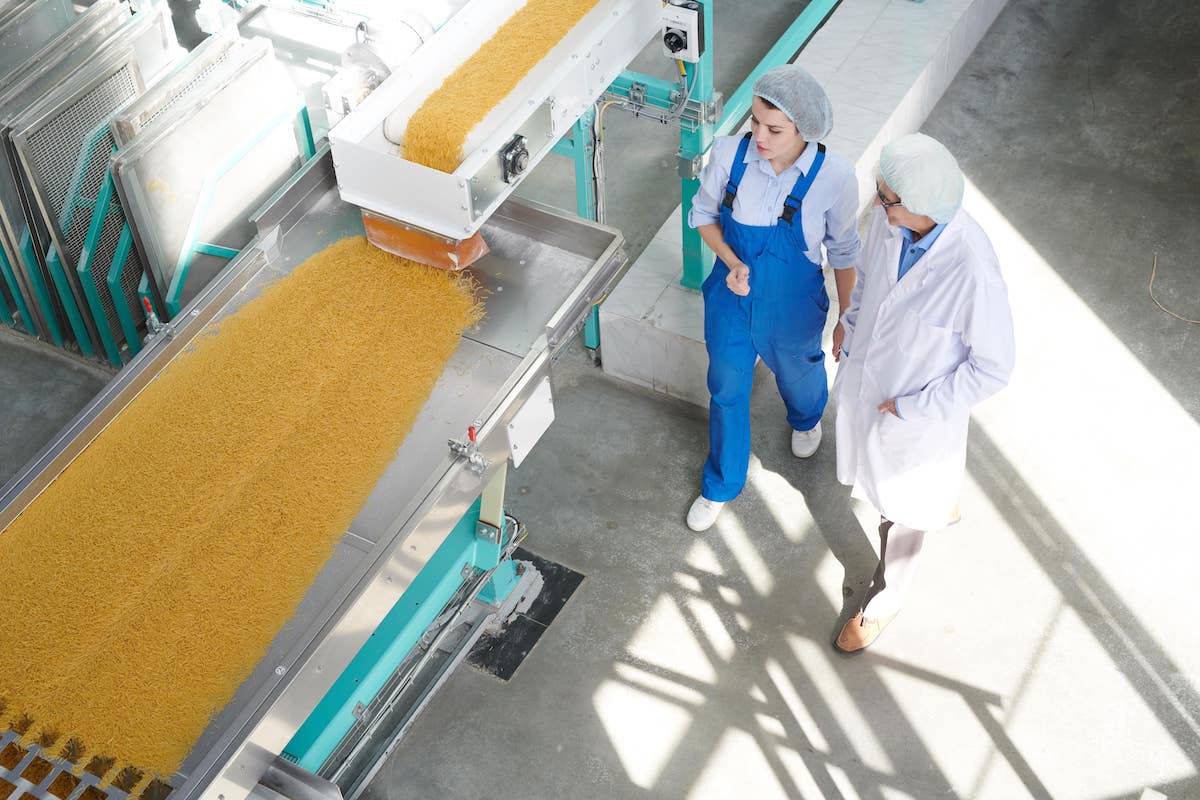Last Updated on June 3, 2025 by Admin
Table of Content
- What is NAPS?
- NAPS Scheme Details You Should Know About
- Objective of the Scheme
- Components of the Scheme
- What are the Key Features of Naps Scheme?
- Benefits of NAPS Scheme
- Service offered by NAPS:
- Eligibility and Requirements for NAPS Registration
- How to Register in NAPS?
- Final Words
- FAQs
What is NAPS?
National Apprenticeship Promotion Scheme (NAPS) is a formal model of training that is efficient, industry-led, and practice-oriented. The objective of this system is to promote apprenticeship training throughout the country and provide financial assistance to establishments for undertaking these programs.
Apprenticeship training is considered one of the most coherent ways to develop skilled manpower in the country. It covers all types of apprentices except Graduate, Technician, and Technician (Vocational) apprentices, which are covered by the scheme administered by the Ministry of Human Resource Development. Let’s get to know about what is NAPS registration, NAPS portal registration details and NAPS apprenticeship registration.
Useful Resources: Food Allergy Course | Online Haccp Training | Food Safety Supervisor Training | NAPS Scheme
NAPS Scheme Details You Should Know About
Under NAPS, the Government will share 25% of the prescribed stipend with employers engaged in providing apprenticeship training to fresh/pass-out candidates. The same will be applicable for apprentices who come directly to the Apprenticeship Training without any formal training.
However, this will not be available during the Basic Training period alone. The Government has also made provisions to reimburse up to Rs 7500 per apprentice for a maximum of 500 hours/3 months as the cost incurred on basic training.
Any entity or person who has business in any trade or occupation is eligible to apply for an apprenticeship under the National Apprenticeship Promotion Scheme. The total strength of the organization shall be anywhere from 2.5% to 10% of the total organization.
The employer must be registered with EPFO/ESIC/MSME, must register on the apprenticeship portal, and must have an Aadhaar linked bank account. Talking about the apprentice, they must be a person who has entered into an apprenticeship contract with the employer for apprenticeship training.
This includes trainees who have Passed from ITI courses/dual learning mode from ITIs/completed PMKVY/MES courses/minimum educational qualification required for trade and have not undergone any formal trade training.
Objective of the Scheme
The core objective of NAPS is to promote apprenticeship training and skill development in India. The program focuses on providing hands-on training to enhance employment and bridge the skill gap in various sectors. This scheme facilitates partnerships between industries and educational institutions and aims to offer financial assistance to establishments for undertaking such programs. FICCI plays a pivotal role in advocating policies that promote skill development, vocational training, and apprenticeships, contributing to workforce enhancement and economic growth in the country.
Components of the Scheme
The National Apprenticeship Promotion Scheme (NAPS) in India comprises several key components.
- It involves establishing a web portal for seamless registration and monitoring of apprenticeship training.
- Financial incentives are provided to both employers and apprentices to encourage participation. Employers are eligible for cost-sharing, basic training cost reimbursement, and additional incentives. Apprentices receive stipends to support their learning journey.
- Industry associations, including the Federation of Indian Chambers of Commerce and Industry (FICCI), play a role in promoting and implementing NAPS. The scheme focuses on enhancing skills, fostering industry collaboration, and ultimately contributing to a skilled and job-ready workforce in various sectors.
What are the Key Features of Naps Scheme?
The National Apprenticeship Promotion Scheme (NAPS) is a new initiative by the Government of India to promote apprenticeship training throughout the country. Here are the key features of the scheme explained:
- Monetary Benefits for Employers: Under the scheme, the government pays back 25% of the stipend given to apprentices or ₹1,500 per apprentice per month, whichever is lower. This offset will ease the financial burden on employers and incentivize greater hiring of apprentices.
- Support For Basic Training: NAPS will pay for the basic training of those apprentices who have not been formally trained in any skill. This allows employers to ensure apprentices are job-ready prior to commencing on-the-job training.
- Curriculum That Meets Industry Standards: Emphasis on active participation by industries in the development of training modules and standards is a key feature of this scheme. This equips apprentices with the essential practical skills required in their field.
- Management Is Done on Digital Platforms: Employers and apprentices can conveniently register on the online portal. Furthermore, the portal enables the uploading of contracts, tracking of stipend disbursement, and monitoring of apprentices’ performance.
- Wide Reach across Sectors: NAPS funds apprenticeship programs in a variety of sectors like manufacturing, agriculture, retail, logistics, IT, and many others. This fosters inclusivity and enables the youth to explore diverse fields.
- Public Relations and Promotion Activities: There is an ongoing campaign to create awareness among the businesses and the youth to take part in apprenticeships. Such initiatives also contribute towards widening the acceptance of vocational training.
- Prioritization of Employment and Skill Advancement: NAPS intends to develop skillful manpower by addressing the mismatch between the levels of schooling and the requirements of the field of work, leading to better employment opportunities and productivity.
Ultimately, NAPS champions a coordinated network that advances the interests of the youth, businesses, and the economy.
Benefits of NAPS Scheme
1. More Opportunities
The government has clarified that the apprentices will have more opportunities to learn new skills as the apprenticeship training will be linked to the Pradhan Mantri Kaushal Vikas Yojana (PMKVY), or Modular Employable Skill (MES).
2. Ease of Access
The apprenticeship training will be administered through an online portal that will make the process easy for both participants and program administrators.
3. Employer Features
By registering your apprenticeship program online as an employer, you can submit returns and records, submit claims for government funding, pay government entitlements, and find candidates for specific sectors.
The website also allows you to issue offer letters for engaging apprentices to candidates. You can also post contracts of apprenticeship online so that they can be approved by the concerned Regional Directorates of Apprenticeship Training (RDAT) or State Apprenticeship Advisor.
You can evaluate your apprenticeships on the site as well.
4. Candidate Features
Candidates should register with a Basic Training Provider that corresponds to the sector, trade, and region they are interested in. Candidates should expect to send applications to potential employers through the BTP. They can receive, accept, and process all necessary contractual obligations using the BTP’s online system and find a BTP specific to their sector.
Service offered by NAPS:
- FICSI facilitates NAPS with its Third-party aggregator
- It designs the curriculum for NAPS
- It facilities for claim reimbursement to candidate
- Currently FICSI is offering NAPs program in Following QPs
- Assistant Lab Technician-Food and Agricultural Commodities
- Baking Technician/Operative
- Corn Starch Manufacturing Technician
- Dairy Processing Equipment Operator
- Fish and Sea Food Processing Technician
- Jam, Jelly and Ketchup Processing Technician
- Packing Machine Worker-Food Processing
- Spice Processing Technician
- Squash and Juice Processing Technician
- Traditional Snack and Savoury Maker
Eligibility and Requirements for NAPS Registration
The National Apprenticeship Promotion Scheme (NAPS) enhances skill development by providing both financial support to employers and incentives to apprentices. Mentioned below is the criterion/eligibility and requirement for NAPS apprenticeship registration & NAPS registration for employers:
For Apprentices (Trainees):
- Eligibility: Indian citizen.
- Age: Minimum age is 14 years; 18 years for hazardous industries.
- Educational Qualification: Depending on the trade; normally from 8th pass to undergraduate.
- Registration: Must sign up on [Apprenticeship India Portal](https://portal.apprenticeship.govin/Pages/Apprenticeship-India-Portal.aspx)
- Bank Account: Must possess an Aadhaar linked bank account to receive stipend.
- Employment Status: Must be a nonemployee in the same broader occupational area prior to entering the apprenticeship
For Employers (Establishments):
- Business Registration: Must be a business registered under any of Indian laws e.g Companies Act, LLP Act, MSME Act.
- Workforce Size: Establishments with 30 employees and above are required to take on apprentices to the extent of 2.5–15% of their total workforce.
- Registrations: Valid EPFO, ESIC and GSTIN registrations are necessary.
- Training Facilities: Must be able to offer some apprenticeship training courses or have other arrangements with external training institutions.
- Portal Registration: Required to register on [Apprenticeship India Portal](https://www.apprenticeshipindia.gov.in/) and advertise apprenticeship vacancies.
- Contract Submission: Apprenticeship contracts are required to be submitted online for approval.
- Compliance: Should comply with the Apprentices Act of 1961 along with its policies and regulations.
These requirements are essential for a smooth integration with NAPS, fostering skills, and improving employment prospects in various industries.
How to Register in NAPS?
To register under NAPS through FICSI (Food Industry Capacity & Skill Initiative), visit the NAPS portal registration website, Apprenticeship India Portal. Select FICSI as your Sector Skill Council during registration. Fill in required details, upload documents, and submit your apprenticeship contract. FICSI facilitates training alignment, monitoring, and certification for food sector apprentices under NAPS.
Final Words
Through the NAPS scheme certificate, the government has set up a structured training program for apprentices. It helps both the industries and apprenticeship training providers by providing an opportunity to expand the skilled workforce in various trades. Hopefully, this structured training will enable more entrants into businesses and boost growth in these businesses as well.
FAQs
The National Apprenticeship Promotion Scheme (NAPS) is an initiative by the Government of India aimed at promoting apprenticeship training and skill development among the youth. It encourages industries to engage apprentices by providing financial incentives to both employers and apprentices. NAPS seeks to bridge the gap between education and employment by fostering industry-relevant skills and enhancing employability.
The salary of a graduate under the National Apprenticeship Promotion Scheme (NAPS) varies depending on factors such as the industry, location, and specific job role. Apprentices typically receive a stipend during their training period, which may range from a minimum amount set by the government to a higher wage determined by the employer. The salary may increase upon completion of the apprenticeship program.
Yes, under the National Apprenticeship Promotion Scheme (NAPS), employers receive financial incentives to encourage the hiring of apprentices. The government reimburses 25% of the prescribed stipend paid to each apprentice, up to a maximum of ₹1,500 per month per apprentice. Additionally, for apprentices requiring basic training, the government covers training costs up to ₹7,500 per apprentice for a maximum of 500 hours or three months. These incentives are designed to reduce the financial burden on employers, promote skill development, and enhance the employability of the youth across various industries.
Under the National Apprenticeship Promotion Scheme (NAPS), employers are not legally obligated to offer permanent employment to apprentices after the completion of their training. However, they are required to provide a certificate of proficiency to the apprentice, which can enhance the apprentice’s employability in the broader job market. Employers are encouraged to consider hiring trained apprentices to retain skilled talent and contribute to workforce development.
Additionally, non-compliance with other provisions—such as failing to register apprenticeship contracts, not maintaining proper records, or neglecting to submit required returns—can attract further penalties. Authorities have been increasingly vigilant, issuing show-cause notices to non-compliant establishments. While imprisonment is no longer a penalty following the 2014 amendment to the Act, the financial repercussions and potential legal actions underscore the importance of adhering to NAPS guidelines.













